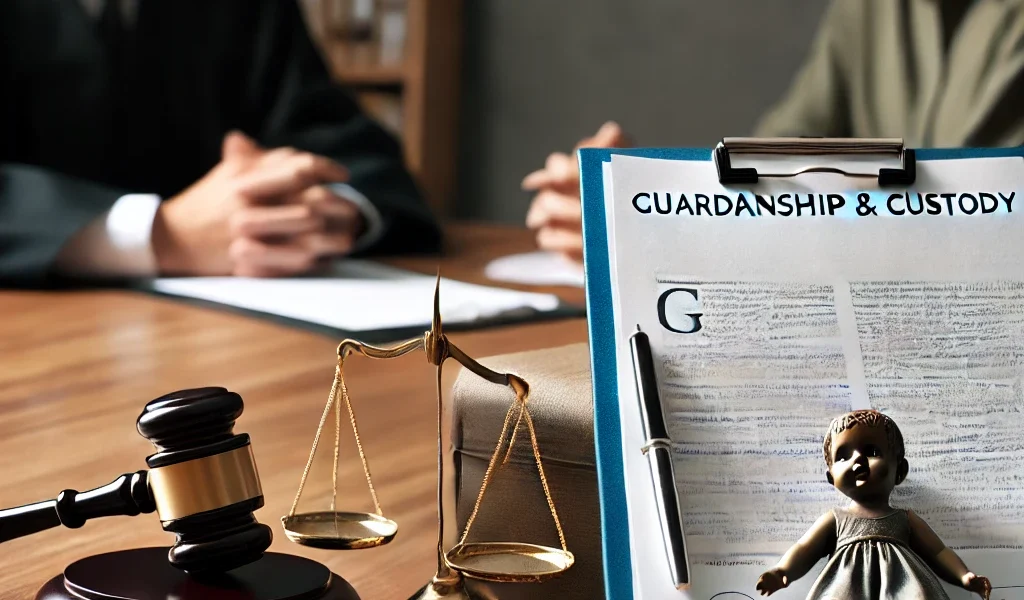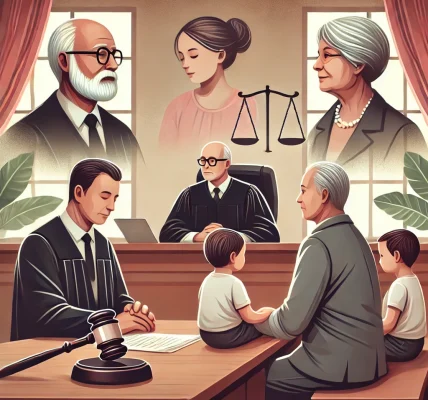Introduction
When it comes to the care and responsibility of a child, two legal terms often arise: guardianship and custody. While both involve the care of a minor, they have distinct legal meanings, responsibilities, and implications. Understanding these differences is crucial for parents, relatives, and legal guardians who may be involved in a child’s upbringing.
What is Custody?
Custody refers to the legal rights and responsibilities of a parent to raise their child. It can be categorized into two types:
- Physical Custody: Determines where the child will live.
- Legal Custody: Grants the right to make major decisions about the child’s education, health, and welfare.
Custody can be sole (one parent has full responsibility) or joint (both parents share responsibilities). Courts usually decide custody based on the child’s best interests, considering factors such as parental stability, financial ability, and emotional support.
What is Guardianship?
Guardianship is a legal relationship in which a non-parent is granted the responsibility to care for a child. It is often established when parents are unable to fulfill their parental duties due to:
- Death
- Incarceration
- Serious illness or incapacity
- Voluntary relinquishment
Unlike custody, guardianship does not always sever parental rights but temporarily transfers decision-making authority to the guardian. The court typically supervises guardianships to ensure the child’s well-being.
Key Differences Between Guardianship and Custody
| Feature | Custody | Guardianship |
|---|---|---|
| Who Can Have It? | Parents | Non-parents (relatives, family friends) |
| Court Involvement | Usually determined during divorce or parental separation | Requires court approval, often for special circumstances |
| Parental Rights | Parents retain rights | Parental rights may be limited but not terminated |
| Duration | Until the child turns 18 or as per court order | Can be temporary or permanent |
| Financial Responsibility | Parents are responsible | Guardians may receive financial support but are not always liable |
Legal Implications
- Decision-Making Power: A guardian can make decisions about the child’s education, healthcare, and general welfare, but a custodial parent has stronger legal standing.
- Inheritance Rights: A child under custody remains a direct heir to the parent’s estate, whereas a guardian may need legal provisions to include the child in inheritance plans.
- Termination: Custody orders can be modified based on circumstances, whereas guardianship usually requires a legal process for termination.
- Adoption Considerations: Guardianship does not permanently sever parental ties, whereas adoption does.
When to Seek Custody vs. Guardianship
- Custody: When biological parents are undergoing separation, divorce, or disputes regarding a child’s living arrangement.
- Guardianship: When neither parent can care for the child due to external circumstances, and another responsible adult is willing to assume the role.
Conclusion
Understanding the distinction between guardianship and custody is essential when making legal decisions regarding a child’s welfare. While custody primarily involves parental rights, guardianship provides a legal alternative when parents are unable to care for their child. If you are considering either, consulting a family law attorney can help navigate the legal process and ensure the best interests of the child are upheld.




